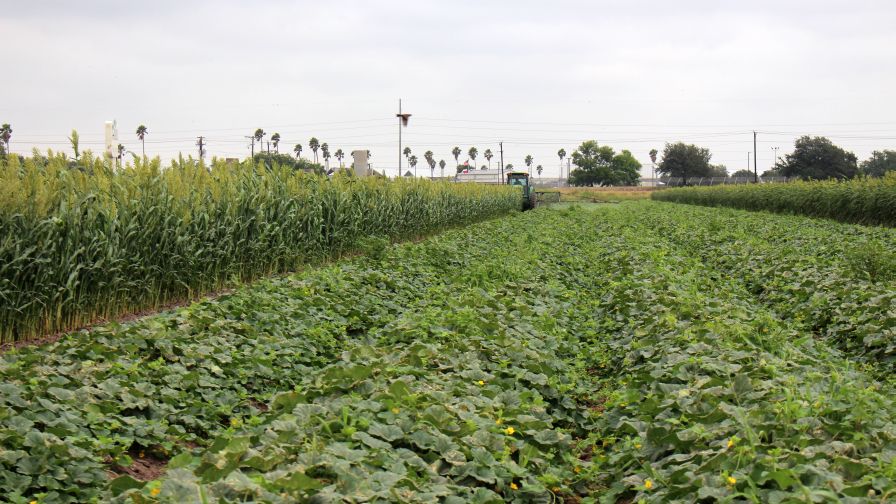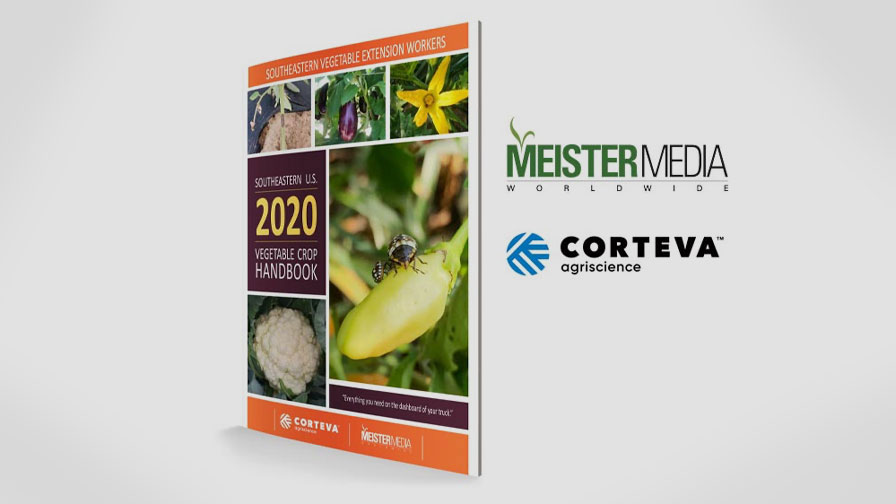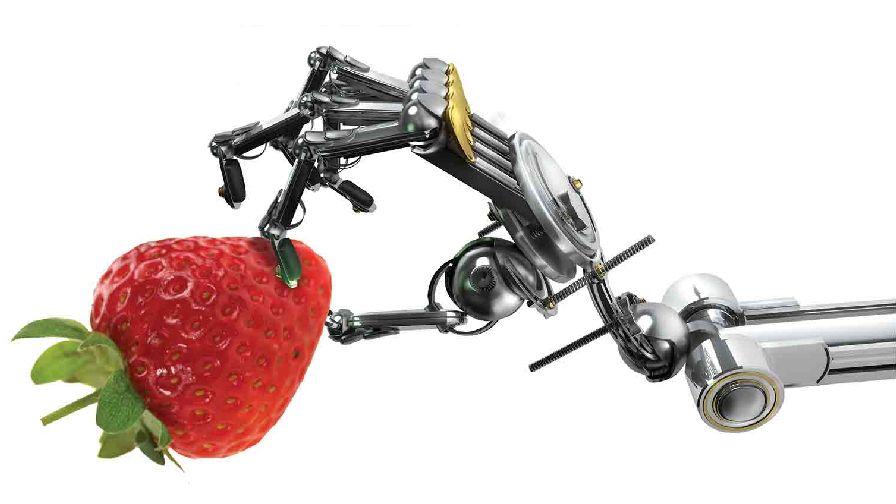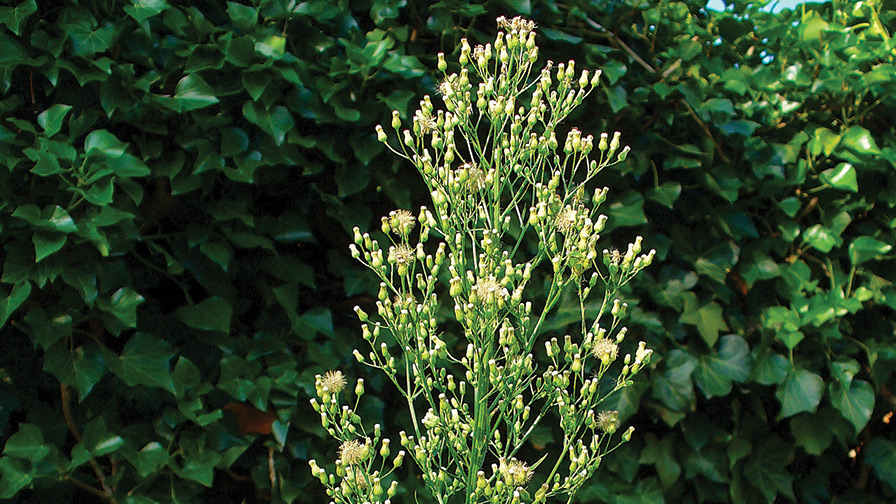UF/IFAS Joins In On Specialty Crop Block Grant Bonanza
The University of Florida is partnering with the Florida Department of Agriculture and Consumer Services (FDACS) and the USDA on two dozen projects to strengthen markets for specialty crops in the state.
FDACS called for project proposals, reviewed them and awarded more than $4.57 million in grants from the USDA. The grants will be used for 34 research projects, two dozen of which will be conducted by researchers with UF/IFAS. This research will help producers find alternative enterprises, reach new markets, provide access to safe and affordable food, and be more efficient, profitable and sustainable.
Recently, Agriculture Secretary Tom Vilsack announced nearly $118 million in grants to state agricultural departments, funded through the 2014 Farm Bill, to enhance the competitiveness of specialty crops such as fruits, vegetables, tree nuts, horticulture and nursery crops, and provide resources to strengthen American agriculture.
The UF/IFAS awards include the following projects:
- Improve microbiological safety of tomatoes by performing an analysis of data collected to develop scientifically-validated amendments for the Tomato Good Agricultural Practices – $175,821.
- With the Florida Specialty Crop Foundation increase the sales and knowledge of Florida blueberries’ nutritional benefits by identifying barriers to marketing and promoting a cohesive image of Florida-grown blueberries through a survey of producers and distributors – $157,559.
- Increase specialty crop producers’ knowledge of new and emerging markets and the requirements for selling to them by providing producers a marketing toolkit, sharing productivity enhancing management practices and demonstrating modern agricultural production practices to new and small farmers – $116,414.
- Enhance the sustainability of potato production and the environment by evaluating the soil-supplying capacities of phosphorus and calcium, and develop improved nutrient management practices – $89,228.
- Provide specialty crop growers effective and economical management of thrips and other pests by determining the efficacy of conventional insecticides and ultraviolet-reflective technologies – $244,332.
- Increase the efficiency and environmental sustainability of small specialty crop farmers in Florida by collaboratively designing and hosting three regional small farms specialty crop conferences, developing a new food safety curriculum and training for farmers’ market managers and specialty crop producers, and engaging key stakeholders in an assessment of the challenges and opportunities of marketing “buy local” initiatives – $204,648.
- With the Florida Specialty Crops Foundation, increase crop yields within the Florida snap bean industry by researching and identifying bean cultivars that will be resistant against Bean Red Node and sharing this research with seed producers and the public – $13,477.
- Gain knowledge of key biological characteristics of ‘resident’ ambrosia beetles that target laurel wilt in avocado orchards – $87,345.
- Evaluating avocado germplasm and cultivars that are resistant to laurel wilt and suited for commercial production in south Florida – $145,381.
- Increase the blueberry industry’s profitability by developing a new rootstock that will increase harvesting efficiency – $102,178.
- Increase crop yields in the blueberry and peach industries by studying the critical bud temperatures to implement strategies that combat lethal low-temperature exotherms – $107,669.
- Increase the quality of the Florida peach harvest and, therefore, increase sales by studying the effect of nitrogen rates on the peach – $128,300.
- Increase blueberry yields by determining optimum nitrogen fertilization rates during plant establishment in newly planted fields and for mature blueberry plantings – $119,991.
- With the Florida Specialty Crop Foundation, increase cucurbits – watermelon, cucumber, squash and cantaloupe – yields by developing a decision-support system that integrates the three models for managing foliar disease – $203,070.
- With the Florida Specialty Crop Foundation, increase strawberry producers’ yields by evaluating strawberry crop-termination techniques and weed management options for cucurbits and eggplants double-cropped with strawberry – $157,897.
- Evaluate the nitrogen fertilization practices utilized by sod producers during establishment and regrowth in an effort to quantify and minimize environmental impact – $101,383.
- With the Florida Specialty Crop Foundation, increase crop pollination, and thus crop yields, by preventing the colonization of barn owl nesting boxes by Africanized Honey Bees, thus preserving a threatened wildlife species and a widely recognized integrated pest management program for sustainable rodent control – $114,500.
- Increase knowledge about the effectiveness of integrated approaches involving grafting and fungicides for managing Fusarium wilt in watermelon production systems by determining the effects of using grafted watermelon transplants with resistant rootstocks – $134,686.
- Employing new genome-scanning technology for strawberry and new software and statistical approaches to accelerate strawberry breeding for early yield so that producers can take advantage of high winter strawberry prices – $200,898.
- With the Florida Specialty Crop Foundation, extend the postharvest quality and safety of Florida fresh market blueberries and peaches by conducting postharvest time/temperature studies at grower/shipper facilities and compare with those necessary to implement the proposed Best Temperature Management Practices – $286,403.
- Address fruit rot diseases of blueberries by developing strategies to combat gray mold and ripe rot and disseminating these strategies to blueberry producers – $113,503.
- With the Florida Specialty Crop Foundation, help a specialty crop employer determine whether the H-2A program provides a viable solution to address labor needs by evaluating labor shortages and estimate the economic ramifications of that shortfall – $93,125.
- Limit the potential damage from invasive lantana by evaluating the male and female fertility of 21 lantana varieties in South and Central Florida to identify varieties with consistent sterility – $131,684.
- With the Florida Specialty Crop Foundation, increase tomato and green bean yields by determining the biology of novel tomato virus and fill gaps in basic Tobacco streak virus knowledge – $217,234.









